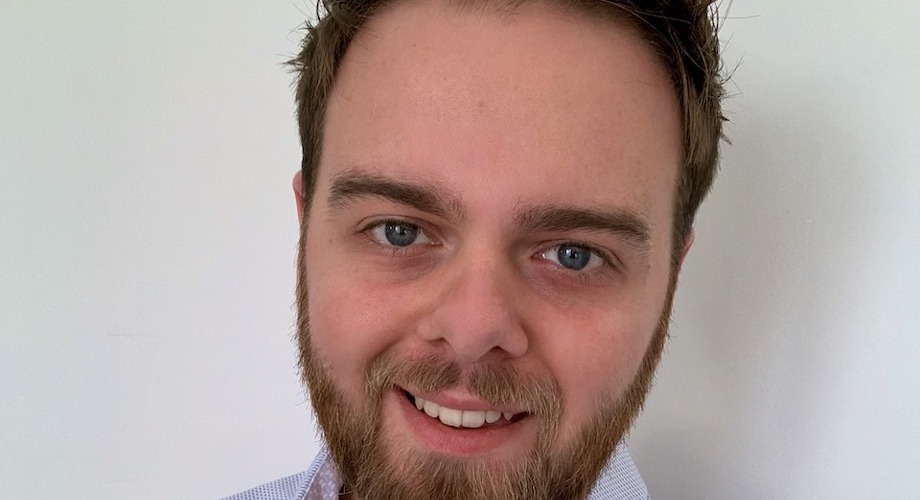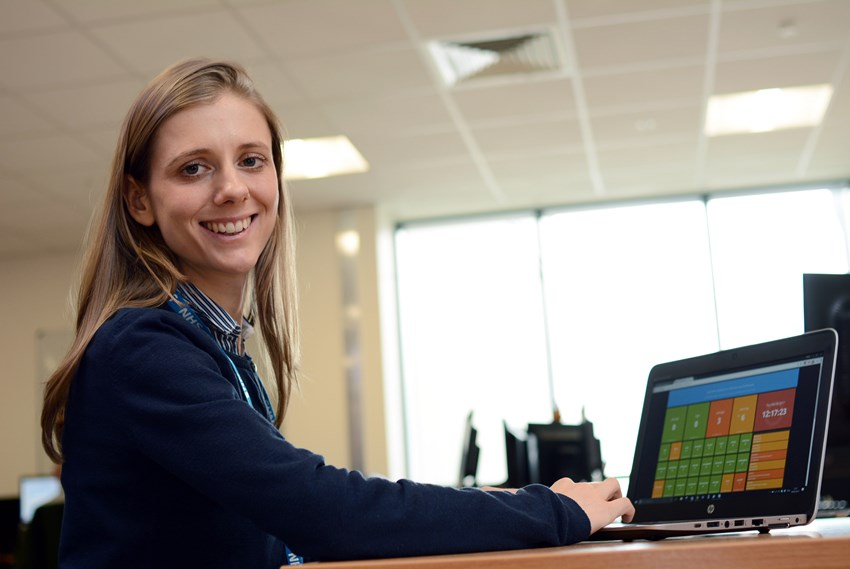
Martin Bryce
01 March 2024
•3 min read

Russell's story
Hey, I’m Russell, and I’m a senior information analyst in the data science team at Public Health Scotland.
Learn more about the role of an information analyst.
Why did you decide to do a Graduate Apprenticeship in Software Engineering?
I went to university straight out of high school, and for a number of reasons, it just didn’t work out for me. So, I left university and started working. After a few years, I had gained lots of skills and learnt a lot about myself. I realised I wanted a career in technology, somewhere I’d care about the work.
That’s when I stumbled upon Modern Apprenticeships. I liked the idea of learning on the job, supported by formal qualifications and I started searching for opportunities.
After completing a Modern Apprenticeship in Digital Technology, I applied for a trainee information analyst job at Public Health Scotland. It included a Graduate Apprenticeship in Software Engineering focusing on Data Science. Everything clicked into place after that. I saw how the Graduate Apprenticeship could help me achieve my career goal.
Find out more about becoming a Graduate Apprentice.
What was the Graduate Apprenticeship really like?
I began my Graduate Apprenticeship the year before the outbreak of the COVID-19 pandemic. The lockdown period brought significant changes, and things only recovered in my final year. I worked, studied, and attended lectures and tutorials remotely.
Although I had an excellent study environment at home, I missed out on a lot of the typical Graduate Apprentice experience.
I also applied for a promotion in my first year and was fortunate enough to be able to continue the Graduate Apprenticeship in my new role.
In the programme's first half, I attended university in 8-week blocks and completed modules tailored for the Graduate Apprenticeship cohort. At the time, I was concerned that the schedule would detach me from the workplace too much. But, on reflection, it actually helped me to manage my time well and focus on my coursework.
During the third year of my Graduate Apprenticeship, my schedule changed. I began attending university on a “day-release” basis during each semester, participating in online tutorials and lectures with full-time students. However, balancing my work commitments and study time was a bit more challenging.
What was the main challenge?
From the start, I knew the Graduate Apprenticeship would be more than a 9 to 5 commitment. The general split was 50% lectures, 40% tutorials, 10% coursework, and then studying for exams.
Public Health Scotland provided support and flexibility in the workplace, and the university aligned the coursework to work-based learning. However, I needed to put in many hours of study to complete coursework. On top of that was my day job, which included work tasks, other projects, and meetings… so many meetings!
I also thought I’d challenge myself further, and I became a dad in the first year of my apprenticeship. So, time was definitely the main challenge!
As I progressed with the Graduate Apprenticeship, the time aspect moved from making sure I was planning my days and tasks effectively to prioritising and negotiating deadlines and expectations. This isn’t a bad thing, though! Using soft skills to overcome challenges is so important in the workplace.
What did you enjoy the most about the Graduate Apprenticeship?
I had to complete a work-based project with dependencies and connections with real stakeholders each year. This was my favourite part of the Graduate Apprenticeship. I thrived in projects where everyone involved was invested in delivering a successful outcome.
Throughout the Graduate Apprenticeship, I had an excellent opportunity to gain exposure to various work streams within Public Health Scotland. I worked with different teams on interesting projects and shared the results with stakeholders in reports and metrics. I also had to research beyond the limits of the course topics. All of this made understanding the wider health and care system easier.
During the 4-year programme, I contributed to the development of a test records tool for a new data collection system. I analysed various health topics for medical professionals, researchers, and the private sector. Additionally, I implemented new frameworks and efficient coding practices to enhance existing codebases.
I completed the apprenticeship in 2023 and graduated with an honours degree in Software Engineering from the University of Glasgow.
What advice would you give anyone thinking about doing a Graduate Apprenticeship?
I advocate for apprenticeships in the workplace, as there are many benefits for both the apprentice and the employer. I’ve been lucky enough to run Data Science Graduate Apprenticeship recruitment at Public Health Scotland for a couple of years now.
Other than “go for it”, my advice is to sell your skills and demonstrate an interest in the topic and technical aspects of the Graduate Apprenticeship. Be clear on your reasons for wanting to do it.
The technology and data industry will always be one where continual learning needs to be prioritised. A graduate Apprenticeship will help set that up, but it’s a commitment and skill that you need to show you’re ready for.

Scotland’s skills generation
Scottish apprenticeships are fuelling Scotland’s skills generation, creating a skilled workforce for now and the future.
Find out how a Graduate Apprenticeship can help you succeed in life and work.